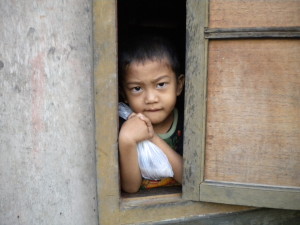Universal Children’s Day is on November 20, 2013, a day to annually celebrate childhood worldwide. First proclaimed by the United Nations General Assembly in 1954, it was established to encourage all countries to institute a day to initiate action to benefit and promote the welfare of the world’s children and this year the focus is on ending violence. Nov 20th also marks the adoption of the Convention on the Rights of the Child (1989). This is the most widely ratified Convention in the world, of which all but 3 nations have not ratified (US, Somalia, and South Sudan).
A new data report, produced by UNICEF partner Child Helpline International (CHI), shows that violence and abuse, neglect, depression, suicide, child trafficking and commercial exploitation are issues faced by millions of children on a daily basis.
Child Helpline International has analysed a decade of global data from over 126 million contacts made by children and young people with child helplines in 141 countries. This forms the basis of a global data publication and five regional data publications.
In The Voices of Children and Young People in Africa, data shows that over 18 million contacts were made with child helplines in Africa. This number likely underrepresents levels of violence as many children don’t have access to phones, and much violence occurs in the home and is not discussed outside.
The majority of these contacts related to abuse and violence (29%). Specifically, physical abuse is noted as the number one reason why children and young people contact child helplines. Among other alarming frightening issues is that children have had difficulties accessing healthcare and education services because they don’t have a birth certificate (almost 5,000 contacts in 2012). This continues to be a child protection concern around the globe, and is the focus of many child protection interventions. Data also shows a horrifying rise in contacts on themes concerning corporal punishment, child marriage and commercial or sexual exploitation.
In The Voices of Children in Europe, we see that over the past decade rapid advancement in technology has shrunk the world in terms of connectivity and access to information, opening up new avenues for children and young people to grow into productive citizens. It has also exposed them to new threats and dangers in the on-line environment. The European economic crisis has had a severe impact on their lives resulting in an increasing number of contacts on depression, fear, anxiety and suicidal tendencies. Disturbing issues such as child abandonment, calls for food and basic needs, financial assistance and commercial exploitation have emerged since 2007.
In The Voices of Children in the Americas and Caribbean, the highest numbers of contacts were about abuse and violence (13%), peer relationships (20%), family relations (15%), and psycho-social and mental issues (27%). Abuse and violence against children and young people has spiralled since the onset of the economic crisis. Family members are responsible for a substantial number of abuse and violence cases. Girls and boys report sexual, emotional, and physical abuse. Boys suffer from physical abuse, while girls report more on sexual abuse.
Schools should be an environment for learning, free from abuse and violence. For many children and young people in the Americas and Caribbean region this is not the case. Children and young people struggle with issues such as homework, the attitude of the teachers and increasingly bullying. Child helplines have received many contacts on violence and abuse perpetrated by teachers and bullying by peers. Children and young people are becoming increasingly distressed and some are contemplating suicide. Contacts on depression are growing rapidly. Self-harm has registered an increase as children and young people are trying to cope with distress and depression. Girls in the region are taking part in self-harm more than boys. The number of missing children is rising. More children and young people are asking for shelter.
Also in the Americas and Caribbean region substance abuse amongst young people has increased. Reports on denial of access to services, healthcare and education have increased. Child trafficking has significantly increased in the past 5 years. Commercial sexual exploitation is rising dramatically. Most contacts on sexual exploitation are made by girls. Increasing reports on cyber-bullying are emerging. Cyber-bullying extends the harm of bullying into children and young people’s private space.
Universal Children`s Day is a time for us to contemplate the state of the world for our children, celebrate them and consider what more we can do to make the world a safe place for all children.
It is also a time to value the role children play in addressing violence, and engaging them as active participants in creating sustainable solutions.
Despite an increase in laws and legislation, programs and services, and general awareness about how violence affects children, violence continues to pervade the lives of children and their communities. To address issues of violence requires a greater shift towards prevention and early intervention programs, and active engagement with children themselves to identify solutions.
Lynda Laushway – Executive Director, SWOVA
(Photos by Lynda Laushway, and Megan Manning; Feature photo by Juliane Liebermann on Unsplash)



